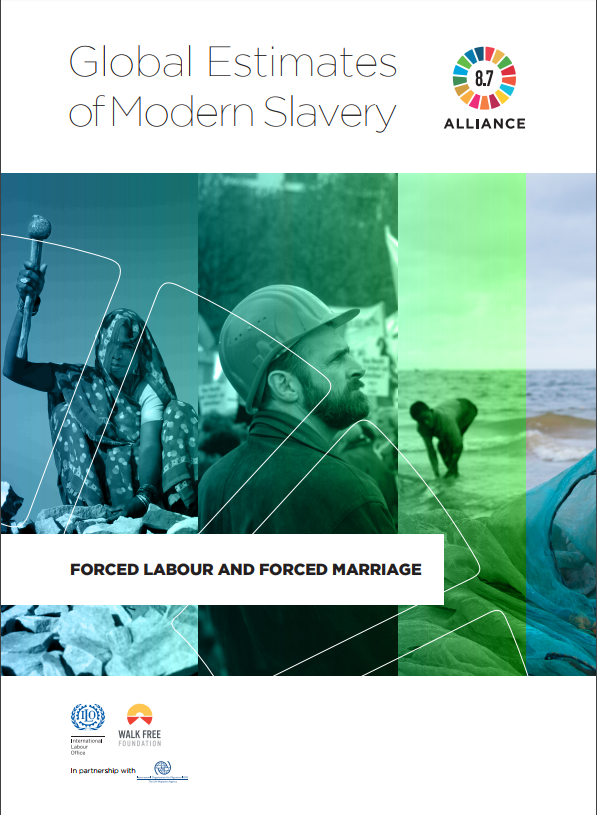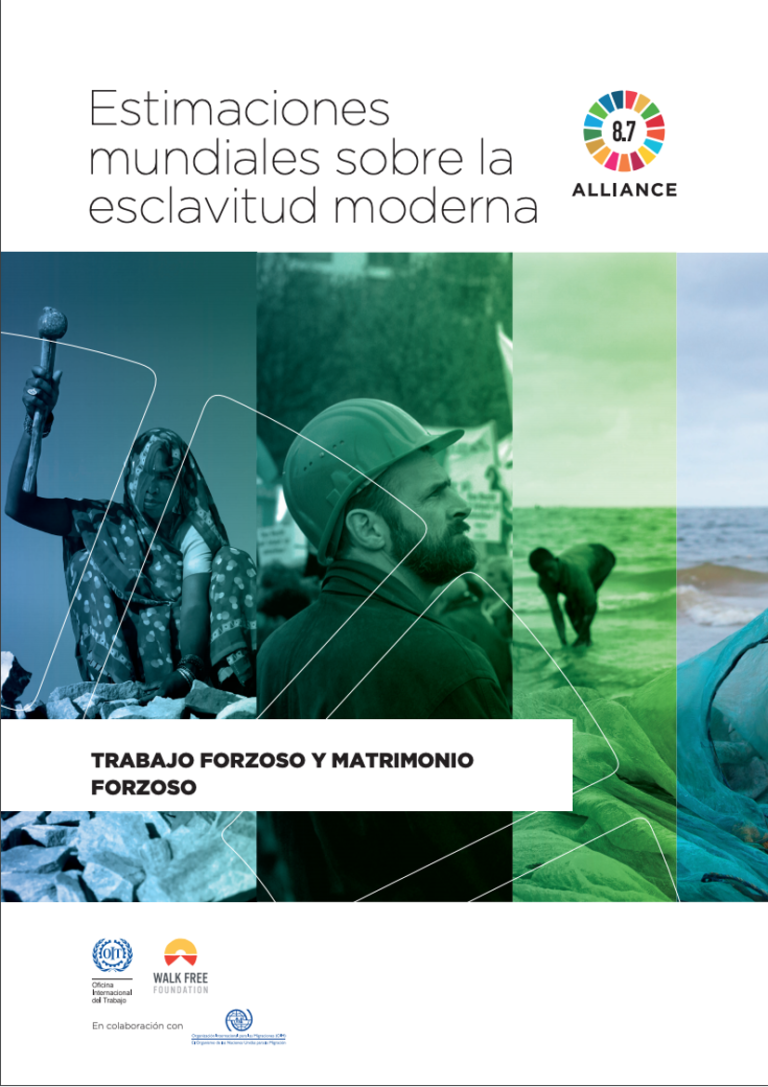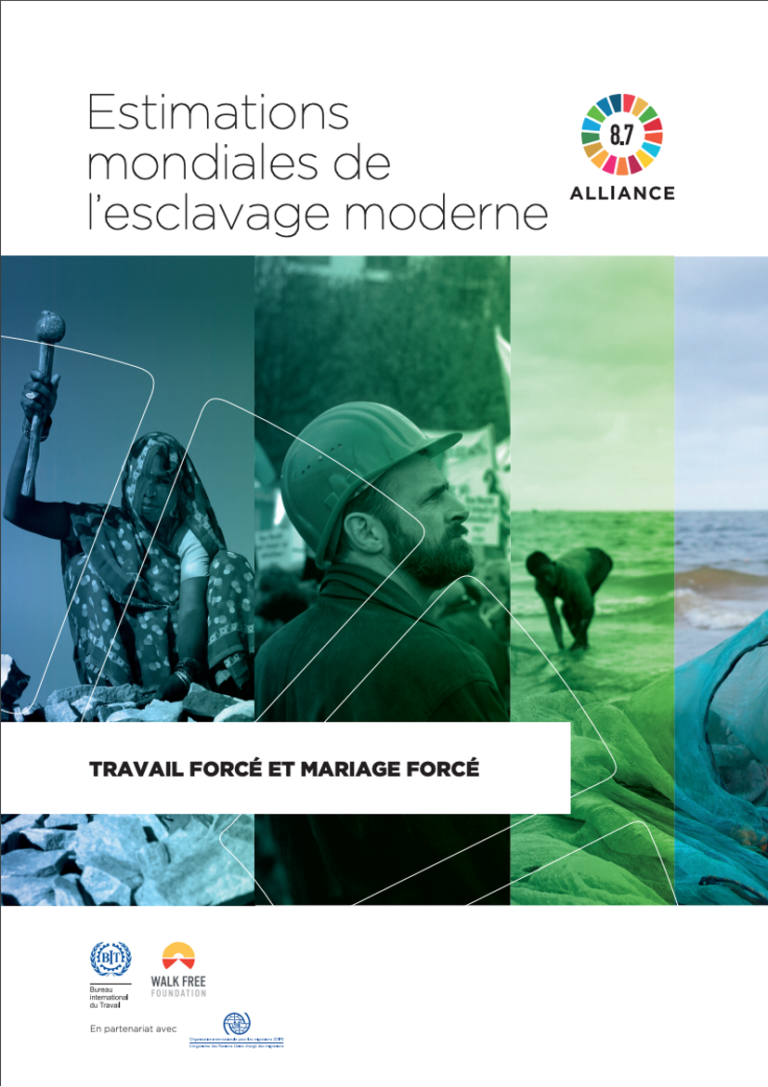The 2017 Global Estimates can be found online here.
These modern slavery global estimates are the result of a cooperative effort between the International Labour Organization (ILO) and the Walk Free Foundation, in partnership with the International Organization for Migration (IOM). They benefited from inputs provided by other UN agencies, in particular the Office of the High Commissioner for Human Rights (OHCHR).
In the context of this report, modern slavery covers a set of specific legal concepts including forced labour, debt bondage, forced marriage, other slavery and slavery like practices, and human trafficking. Although modern slavery is not defined in law, it is used as an umbrella term that focuses attention on commonalities across these legal concepts. Essentially, it refers to situations of exploitation that a person cannot refuse or leave because of threats, violence, coercion, deception, and/or abuse of power.
The Global Estimates of Modern Slavery focus on two main issues: forced labour and forced marriage. The estimate of forced labour comprises forced labour in the private economy (forms of forced labour imposed by private individuals, groups, or companies in all sectors except the commercial sex industry), forced sexual exploitation of adults and commercial sexual exploitation of children, and state-imposed forced labour. Due to limitations of the data, as detailed in this report, these estimates are considered to be conservative.



